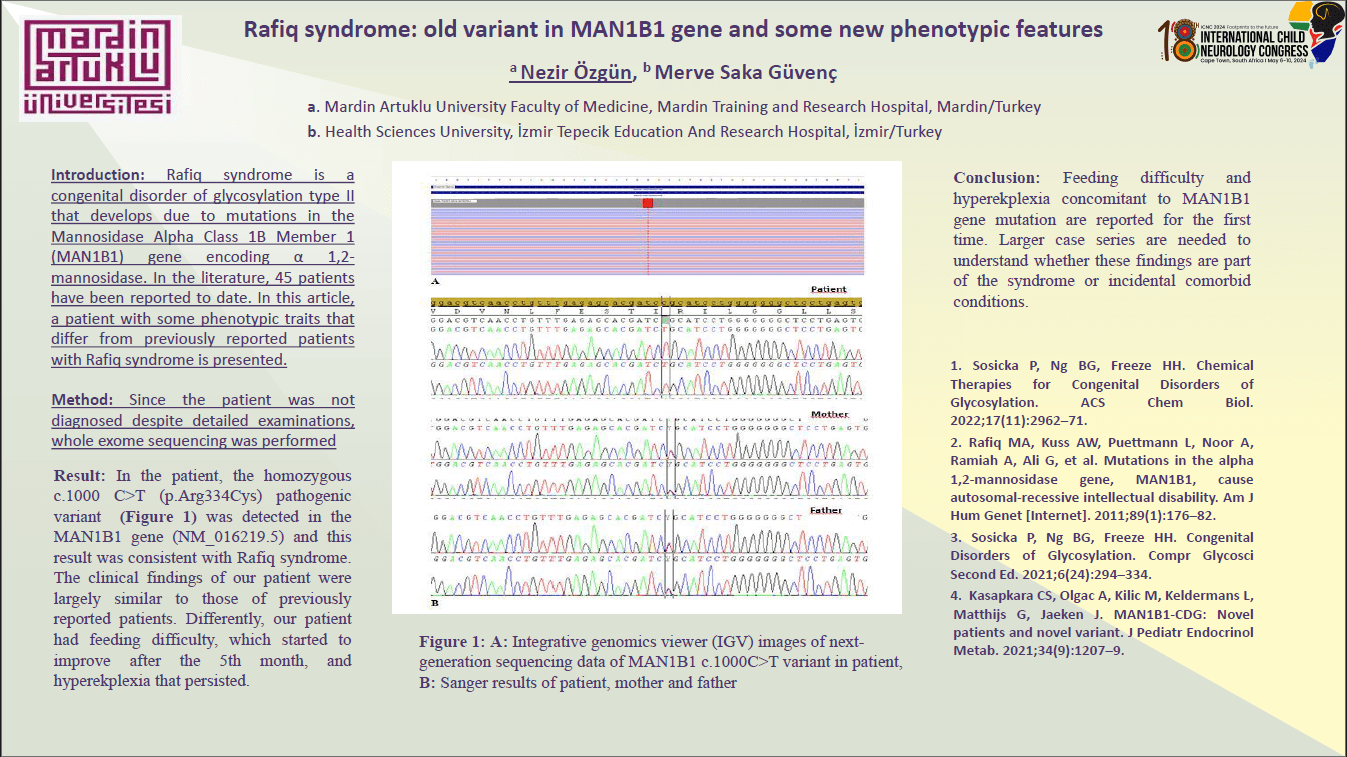Rafiq Syndrome: Old Variant In MAN1B1 Gene And Some New Phenotypic Features
Introduction: Rafiq syndrome is a congenital disorder of glycosylation type II that develops due to mutations in the Mannosidase Alpha Class 1B Member 1 (MAN1B1) gene encoding α 1,2-mannosidase. In the literature, 45 patients have been reported to date. In this article, a patient with some phenotypic traits that differ from previously reported patients with Rafiq syndrome is presented. Method: Since the patient was not diagnosed despite detailed examinations, whole exome sequencing was performed. Result: In the patient, the homozygous c.1000 C>T (p.Arg334Cys) pathogenic variant was detected in the MAN1B1 gene (NM_016219.5) and this result was consistent with Rafiq syndrome. The clinical findings of our patient were largely similar to those of previously reported patients. Differently, our patient had feeding difficulty, which started to improve after the 5th month, and hyperekplexia that persisted. Conclusion: Feeding difficulty and hyperekplexia concomitant to MAN1B1 gene mutation are reported for the first time. Larger case series are needed to understand whether these findings are part of the syndrome or incidental comorbid conditions.
Nezir Özgün
Mardin Artuklu University Medical Faculty
Turkey
Merve Saka Güvenç
İzmir Tepecik Education And Research Hospital
Turkey
